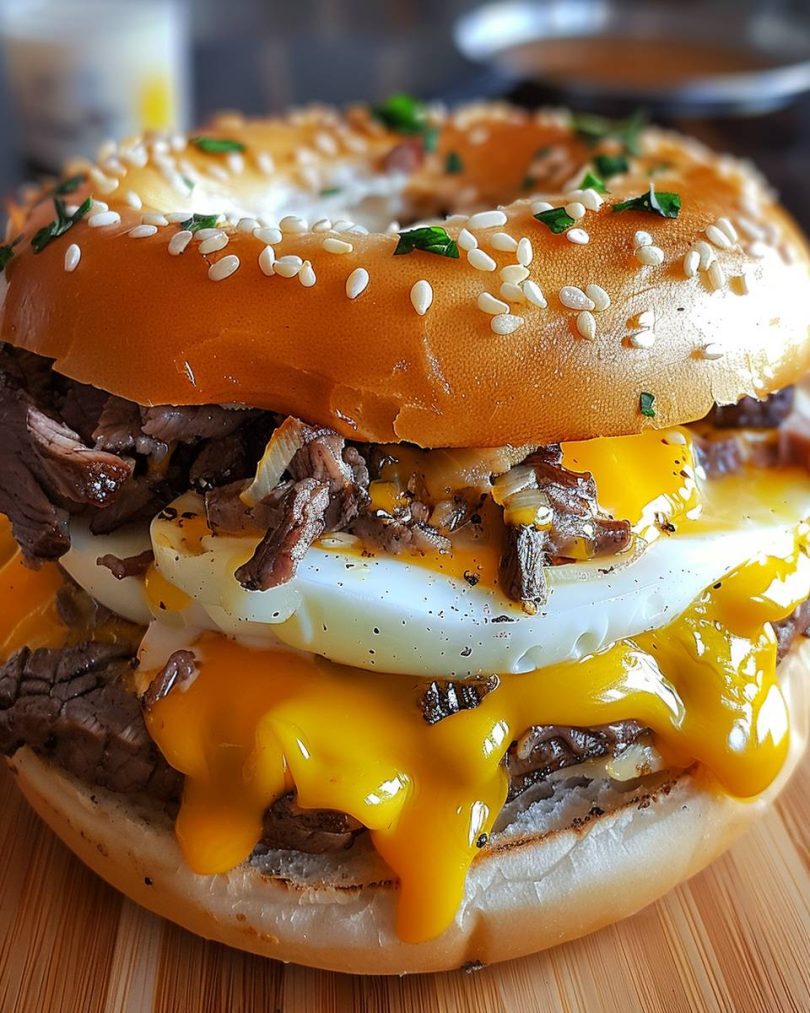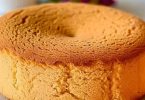Mastering the Morning: Recreating McDonald’s Steak, Egg, and Cheese Bagel Copycat at Home
McDonald’s breakfast options have become as iconic as their burgers and fries. The introduction of breakfast at McDonald’s revolutionized fast food morning offerings and made items like the Steak, Egg, and Cheese Bagel household names. This dish stands out as a perfect candidate for a copycat recipe due to its unique combination of flavors and the nostalgia it evokes among its fans.
From Egg McMuffin to Bagels: The Evolution of McDonald’s Breakfast
McDonald’s first ventured into breakfast with the introduction of the Egg McMuffin in 1971, conceived by franchisee Herb Peterson as a way to incorporate breakfast into the fast-food giant’s offerings. This was a revolutionary move, setting the stage for breakfast becoming a standard offering across fast-food chains globally.
1975: Introduction of the Egg McMuffin nationwide
1980s: Expansion of the breakfast menu to include hotcakes and sausages
1993: Breakfast burritos added
2003: Introduction of the Steak, Egg, and Cheese Bagel
Some fun facts about McDonald’s breakfast:
McDonald’s breakfast accounted for 25% of their sales in the early years following the breakfast launch.
The concept of a “drive-thru” breakfast was pioneered by McDonald’s, significantly influencing morning routines in America.
For more details on the history and impact of McDonald’s breakfast, check out this comprehensive look at McDonald’s breakfast evolution.
The Rise of McDonald’s Steak, Egg, and Cheese Bagel: A Breakfast Revolution
The Steak, Egg, and Cheese Bagel was introduced in the early 2000s, featuring a soft bagel, a fluffy folded egg, savory steak, and creamy melted cheese. Its origins are a testament to McDonald’s continuous innovation in expanding their breakfast menu to include heartier, more substantial options.
Popularity among hearty breakfast seekers
Combines traditional American breakfast elements in a handheld form
Fun facts and anecdotes about the dish:
This menu item quickly became a favorite for its filling nature and the convenience of having a robust breakfast on the go.
It reflects McDonald’s response to consumer demands for more diverse and substantial breakfast options.
Why Copycat Recipes? Unpacking the Trend of Recreating Restaurant Favorites
Copycat recipes have surged in popularity as enthusiasts strive to recreate their favorite restaurant meals at home, driven by a blend of nostalgia, cost-saving, and the joy of cooking.
Nostalgia for favorite childhood dishes
Cost-effectiveness of home cooking vs. eating out
Customization of dishes to personal taste or dietary needs
Here are some reasons why people are drawn to making copycat versions of dishes like the Steak, Egg, and Cheese Bagel:
It allows for adjusting ingredients to cater to dietary restrictions or preferences.
Recreating the dish at home can be a fun and rewarding project that brings the fast-food experience into the kitchen.
For a deeper dive into the psychology behind the popularity of copycat recipes, check out this insightful article on food nostalgia.
The Perfect Copycat: Why the Steak, Egg, and Cheese Bagel is Ideal for Copycat Cooking
The Steak, Egg, and Cheese Bagel is ideal for a copycat recipe because it involves readily accessible ingredients and straightforward cooking techniques that can be replicated in any home kitchen.
Simple list of ingredients: Bagels, steak, eggs, and cheese.
Easy to assemble: No complex cooking skills required.
Adaptable: Easy to modify for different tastes or dietary needs.
This combination of factors makes it a favored choice among DIY chefs and food enthusiasts who enjoy bringing a piece of McDonald’s into their own kitchens.
Cooking the Classic: How to Make McDonald’s Steak, Egg, and Cheese Bagel Copycat at Home
Essential Ingredients for the Perfect McDonald’s Steak, Egg, and Cheese Bagel Copycat
Understanding and preparing the ingredients is the first step to recreating the McDonald’s Steak, Egg, and Cheese Bagel. Here’s what you’ll need:
Bagels: 2, preferably plain or everything style
Steak: 1/2 pound (225 grams) of thinly sliced ribeye or sirloin
Eggs: 2 large
American cheese slices: 2
Salt and pepper: to taste
Butter: for cooking and toasting the bagels
Onion slices: optional, for added flavor
These ingredients are easy to find and together create the savory taste that mimics the beloved McDonald’s breakfast classic. Using ribeye or sirloin ensures that the steak is flavorful and tender, making it a key component of this dish.
How to Make Your Own McDonald’s Steak, Egg, and Cheese Bagel Copycat at Home
Creating this copycat recipe involves several steps, each important for achieving the right flavor and texture:
Prepare the steak:
Season the steak slices generously with salt and pepper.
Heat a skillet over medium-high heat and add a small amount of butter.
Cook the steak slices for about 2-3 minutes per side or until they are browned and cooked to your desired level of doneness. Remove from the skillet and set aside.
Cook the eggs:
In the same skillet, reduce the heat to medium.
Add more butter and crack the eggs into the skillet. Season with salt and pepper.
Cook according to your preference: sunny-side up, over easy, or flipped for a well-done yolk.
Toast the bagels:
Cut the bagels in half. Butter each cut side lightly.
In a separate skillet or toaster, toast the bagels until golden and crispy.
Assemble the sandwich:
On the bottom half of each toasted bagel, place a slice of American cheese.
Add the cooked steak on top of the cheese.
Carefully place the cooked egg over the steak.
If desired, add some onion slices for additional flavor.
Cap with the top half of the bagel.
These steps ensure each element of the sandwich is prepared properly, combining to recreate the familiar and comforting flavors of the original McDonald’s sandwich.
Recreating McDonald’s Signature Breakfast Sauce for the Ultimate Bagel Sandwich
The original McDonald’s steak, egg, and cheese bagel is known for its unique sauce. Here’s how to make a copycat version of McDonald’s breakfast sauce:
Ingredients:
Mayo: 1/2 cup
Yellow mustard: 1 tablespoon
Lemon juice: 1 teaspoon
Steak sauce (e.g., A1): 1 teaspoon
Dried dill: a scant teaspoon
Hot sauce: a dash (optional)
Salt and pepper: to taste
Instructions:
In a small bowl, whisk together the mayo, mustard, lemon juice, steak sauce, and dill.
Season with salt, pepper, and a dash of hot sauce to taste.
Mix until well combined. The sauce can be used immediately or refrigerated to thicken slightly, which enhances the flavors.
Spread this sauce on your bagel just before assembling to add that signature McDonald’s flavor to your copycat breakfast bagel.
Perfecting the Flavor: Expert Tips for a Perfect McDonald’s Steak, Egg, and Cheese Bagel Copycat
Tips for Getting the Closest Taste to McDonald’s
Achieving the authentic McDonald’s flavor in a copycat recipe can be challenging but highly rewarding. Here are some expert tips:
Replicating the Exact Ingredients: McDonald’s unique flavor profile often comes from specific types of ingredients. Use plain bagels that are soft yet slightly chewy, as McDonald’s bagels tend to have a distinctive texture that holds the fillings well without becoming soggy. For the steak, opt for thinly sliced ribeye, which closely mimics the flavor and texture of the McDonald’s version.
Cooking Techniques: The way you cook can greatly impact the taste and authenticity of your copycat recipe. For the steak, ensure it’s seasoned well with salt and pepper and cooked in a pre-heated skillet to achieve a light sear without overcooking. This preserves the juiciness similar to McDonald’s. Eggs should be lightly beaten and cooked until just set; overcooking can lead to a rubbery texture that differs from the fluffy eggs at McDonald’s.
Ideal Sides for the Perfect Breakfast
A well-rounded breakfast can transform your copycat McDonald’s Steak, Egg, and Cheese Bagel into a full meal. Consider these sides to enhance your breakfast experience:
Traditional Fast Food Sides: Recreate the full fast-food experience by serving hash browns or seasoned home fries. These sides offer a crispy texture that contrasts well with the soft bagel.
Healthier Options: For a lighter meal, pair your bagel with fresh fruit or a yogurt parfait. These sides add freshness and lightness to balance the hearty bagel.
Beverages: No breakfast is complete without the right drink. Serve freshly squeezed orange juice or a hot cup of coffee, both of which are breakfast staples at McDonald’s and complement the meal perfectly.
Seasoning Secrets for Richer Flavors
The right seasonings can elevate your bagel sandwich from good to great. Here’s how to enhance the flavors:
Steak Seasoning: Apart from salt and pepper, consider adding a dash of garlic powder and onion powder to the steak for a deeper flavor profile. A hint of smoked paprika can also add a subtle smokiness that enriches the meat.
Egg Flavor Boost: Infuse the eggs with a touch of cream or milk for richness. A sprinkle of chives or parsley can add freshness and a pop of color.
Four Must-Try Sauce Variations for Your Bagel Sandwich
Customizing the sauce can significantly change the flavor profile of your sandwich. Here are four variations to try:
Spicy Mayo: Mix mayonnaise with sriracha or another hot sauce, plus a squeeze of lime for zest.
Herb and Garlic Sauce: Combine mayonnaise with minced garlic, finely chopped parsley, and a squeeze of lemon for freshness.
Honey Mustard: Blend mayonnaise, mustard, honey, and a bit of apple cider vinegar for a sweet and tangy flavor.
Creamy Horseradish: Mix mayonnaise with prepared horseradish, a dash of Worcestershire sauce, and black pepper for a spicy kick.
Alternative Ingredients and Substitutions
Tailoring your bagel sandwich to suit dietary preferences or simply to use what’s available in your pantry can be done without sacrificing taste:
Bagel Alternatives: Use whole wheat bagels for a healthier option or gluten-free bagels to accommodate dietary restrictions.
Meat Substitutions: If you’re avoiding beef, try turkey or chicken steaks as a lighter alternative.
Cheese Options: Swap American cheese for cheddar for a sharper taste or pepper jack for a bit of heat.
Expert Advice: Navigating Pitfalls and Maintaining Quality in Your Copycat Recipe
Common Mistakes to Avoid When Making This Copycat Recipe
Creating a copycat version of McDonald’s Steak, Egg, and Cheese Bagel at home can be straightforward, but a few common pitfalls can affect the outcome:
Overcooking the Steak: One of the biggest mistakes is overcooking the steak, which can make it tough and chewy instead of tender and juicy. Always use a preheated skillet and cook the steak for only 2-3 minutes per side.
Using the Wrong Bagel: Opting for a dense or overly chewy bagel can detract from the overall texture of the sandwich. Use a soft, slightly chewy bagel similar to McDonald’s to get closer to the authentic experience.
Improper Egg Cooking: Cooking eggs too long or at too high a temperature can lead to dry, rubbery eggs. Cook eggs on medium heat and remove them from the heat just before they’re fully set; they will continue to cook from residual heat.
Neglecting Seasoning: Forgetting to season the steak and eggs adequately can result in a bland sandwich. Ensure each component is well-seasoned to enhance the overall flavor of the dish.
Your Top Questions Answered
Here are some frequently asked questions about making the McDonald’s Steak, Egg, and Cheese Bagel at home:
Can I use a different type of meat if I don’t like steak?
Yes, you can substitute the steak with similarly thinly sliced chicken or turkey for a lighter option. Ensure the meat is cooked thoroughly and seasoned well to maintain the sandwich’s savory profile.
What are the best bagels to use for this recipe?
Plain or everything bagels work best as they offer a neutral base that complements the rich flavors of the steak, egg, and cheese without overwhelming them.
How can I make this recipe gluten-free?
Use gluten-free bagels as a substitute. Make sure other ingredients like steak seasoning are also gluten-free.
Can I prepare components of this recipe ahead of time?
Yes, you can cook the steak and eggs ahead of time and store them in the refrigerator. Assemble the sandwich fresh when ready to eat for best results.
What is the best way to store leftover sandwiches?
Deconstruct the sandwich and store the components separately in airtight containers in the refrigerator to prevent the bagel from becoming soggy.
Can I freeze the cooked steak and eggs?
It’s best not to freeze the cooked eggs as they can become rubbery and watery upon reheating. However, the cooked steak can be frozen for up to a month in an airtight container or freezer bag.
How long will the prepared bagel sandwich last in the fridge?
When stored properly, the cooked components can last for 3 days in the refrigerator. Reheat and assemble just before serving.
What are some quick side dishes to serve with this bagel?
Quick side dishes include hash browns, fruit salad, or a yogurt parfait. These complement the richness of the bagel sandwich and provide a balanced meal.
Is there a dairy-free cheese alternative that works well with this recipe?
Yes, many stores offer dairy-free cheese slices that melt well and can be used as a substitute for American cheese in the sandwich.
How do I reheat the sandwich without it becoming soggy?
Reheat the steak and eggs separately in a skillet or microwave, and toast the bagel separately. Assemble the sandwich once all components are warm.
Can I add vegetables to the sandwich? If so, which ones work best?
Yes, adding vegetables can increase the nutritional value and flavor of the sandwich. Consider adding sautéed spinach, tomatoes, or avocado slices for extra texture and taste.
What modifications can I make to lower the calorie content of the sandwich?
Use a lower-calorie bagel option like thin bagels or bagel thins. Opt for leaner cuts of meat, egg whites instead of whole eggs, and low-fat cheese to reduce the overall calorie content.
Keeping It Fresh: Best Practices for Storing Your Copycat McDonald’s Bagel
Proper storage is crucial to maintaining the quality and safety of your copycat McDonald’s Steak, Egg, and Cheese Bagel:
Immediate Storage: If not consumed immediately, deconstruct the sandwich. Store the components separately to avoid sogginess—place steak and eggs in airtight containers in the fridge.
Refrigeration: Properly stored, the cooked components can last for up to 3 days in the refrigerator. Keep them in separate containers to maintain freshness and ease of reheating.
Avoiding Freezer Burn: While freezing is not recommended due to texture changes, if necessary, wrap each component tightly in plastic wrap and place in airtight containers or freezer bags.
Reviving Your Copycat Creation: Optimal Reheating Methods for McDonald’s Bagel Sandwich
Reheating your McDonald’s copycat sandwich properly can ensure it tastes as good as when freshly made:
Toaster Oven: Reheat the bagel in a toaster oven to maintain its crispiness. Set to 350°F (175°C) and heat for about 5 minutes.
Skillet Reheating: Reheat steak and eggs in a skillet over medium heat. Add a touch of butter to prevent sticking and restore some of the original flavors and textures.
Microwave Tips: If using a microwave, cover the steak and eggs with a damp paper towel to prevent drying out. Use a low-power setting to gently warm them without cooking further.
Concluding your journey through crafting the perfect McDonald’s Steak, Egg, and Cheese Bagel at home, you’ve explored everything from selecting the right ingredients to mastering the art of cooking each component just like the fast-food favorite. The joy of recreating a beloved restaurant meal in the comfort of your own kitchen not only brings satisfaction but also the freedom to tailor it to your dietary preferences and creative whims. Whether you’re indulging in a nostalgic breakfast or introducing a new generation to this classic flavor combination, the skills you’ve honed will make every bite as enjoyable as the last.
Now that you’re equipped with detailed recipes, expert tips, and insightful FAQs, why not take this experience further? Share your success with friends and family or engage with fellow food enthusiasts online by posting pictures and thoughts about your homemade creation. If you’ve enjoyed this process and crave more culinary adventures, consider exploring other copycat recipes from your favorite eateries. Each recipe you master expands your skills and adds another delicious dish to your home-cooking repertoire. Remember, the key to a great copycat is not just in the preparation but in the joy of sharing and savoring the results.






